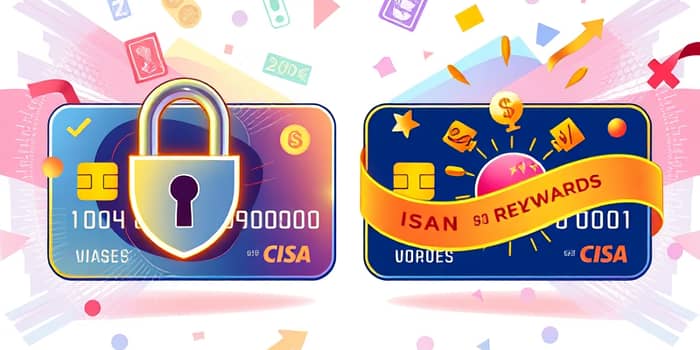Choosing the right credit card can shape your financial future. Understanding the differences between secured and unsecured cards is essential for both new and experienced credit users.
Core Definitions of Secured and Unsecured Credit Cards
A secured credit card requires a cash security deposit as collateral, often matching the approved credit limit. This deposit protects the issuer if the cardholder defaults. Secured cards are primarily designed for people with limited, poor, or no credit and help establish or rebuild credit history.
An unsecured credit card does not require a security deposit. Instead, issuers evaluate your creditworthiness—typically a FICO score of 670 or higher, income, and existing debt—to set your credit limit. These traditional cards often come with lower interest rates, generous rewards, and additional perks.
How Secured and Unsecured Cards Operate
Both secured and unsecured credit cards function the same way for purchases, statements, and payments. Cardholders make transactions up to their credit limit, receive a monthly statement, and must pay at least the minimum due by the payment date.
When used responsibly—making payments on time and keeping balances low—both card types can report to major credit bureaus, positively impacting your credit score over time.
- Secured cards: Approval often available with little or no credit history.
- Unsecured cards: Approval favors applicants with established, good-to-excellent credit.
- Both card types: Accepted anywhere major credit cards are honored.
Key Features and Detailed Comparison
Below is a side-by-side breakdown of the essential features that distinguish secured and unsecured credit cards.
Pros and Cons
Understanding the advantages and drawbacks of each card type can guide you toward the best choice for your financial goals.
- Easier to obtain with poor credit – Secured cards offer approval pathways for individuals rebuilding credit.
- No upfront deposit required – Unsecured cards eliminate the need for collateral.
- Helps build credit history – Both card types report payment activity, building a positive record.
- Higher fees and interest rates – Secured cards often carry steeper APRs and annual fees.
- Rewards and perks often generous – Unsecured cards typically deliver better cash back, travel rewards, and bonuses.
- Strict credit requirements – Top unsecured card offers demand a strong credit profile.
Who Should Use Each Card Type?
Assess your credit history, financial resources, and goals when selecting a card.
Secured cards are ideal for individuals who:
- Have no credit or a damaged credit file
- Need a stepping stone to qualify for traditional credit
- Can afford an upfront deposit to secure their limit
Unsecured cards suit those who:
- Maintain good to excellent credit scores (670+)
- Desire rewards, travel perks, or low-interest offers
- Prefer no collateral requirements
Graduation and Credit Building Strategies
With responsible use—paying at least the minimum due on time, keeping balances low, and monitoring statements—you can improve your credit score and eventually access better card offers.
Many issuers allow you to graduate from a secured to an unsecured card after demonstrating consistent on-time payments, opening new avenues for higher limits and richer rewards.
- Set up automatic payments to avoid missed due dates.
- Keep balances under 30% of your available limit to manage keeping low credit utilization ratios.
- Regularly review your credit report for accuracy and dispute errors promptly.
- Use pre-approval tools to compare offers without impacting your score.
By understanding the nuances of secured versus unsecured credit cards—and aligning your choice with your financial situation—you can confidently build, rebuild, or expand your credit profile. This knowledge empowers you to unlock better loan terms, achieve significant rewards, and lay a strong foundation for long-term financial health.
References
- https://www.discover.com/credit-cards/card-smarts/secured-vs-unsecured-credit-card/
- https://www.capitalone.com/learn-grow/money-management/secured-vs-unsecured-credit-card/
- https://www.bankrate.com/credit-cards/building-credit/secured-vs-unsecured-credit-cards/
- https://www.synchrony.com/blog/banking/secured-vs-unsecured-credit-cards
- https://www.citi.com/credit-cards/understanding-credit-cards/secured-vs-unsecured-credit-cards
- https://www.equifax.com/personal/education/credit-cards/articles/-/learn/what-is-a-secured-credit-card-do-they-build-credit/
- https://www.nerdwallet.com/article/credit-cards/secured-credit-cards-vs-unsecured-difference
- https://www.oneunited.com/blog/unsecured-cards-vs-secured-cards-5-things-you-need-to-know/










